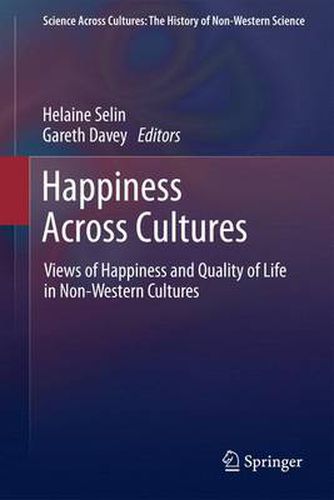Readings Newsletter
Become a Readings Member to make your shopping experience even easier.
Sign in or sign up for free!
You’re not far away from qualifying for FREE standard shipping within Australia
You’ve qualified for FREE standard shipping within Australia
The cart is loading…






This title is printed to order. This book may have been self-published. If so, we cannot guarantee the quality of the content. In the main most books will have gone through the editing process however some may not. We therefore suggest that you be aware of this before ordering this book. If in doubt check either the author or publisher’s details as we are unable to accept any returns unless they are faulty. Please contact us if you have any questions.
Different cultures experience happiness differently. Traditionally, the West is considered materialistic, and happiness is said to come from achievement and acquisition. The East is said to be more people-oriented, where happiness is a result of deep personal interactions. Thus, poor people can be happier in the East than the West, because they are not so concerned with possession and more with society. This book considers happiness and quality of life in non-Western countries and cultures. Its coverage is diverse and spans the breadth of the non-Western world, revealing unique perspectives of happiness and life quality embedded in rich cultural traditions and histories.
$9.00 standard shipping within Australia
FREE standard shipping within Australia for orders over $100.00
Express & International shipping calculated at checkout
This title is printed to order. This book may have been self-published. If so, we cannot guarantee the quality of the content. In the main most books will have gone through the editing process however some may not. We therefore suggest that you be aware of this before ordering this book. If in doubt check either the author or publisher’s details as we are unable to accept any returns unless they are faulty. Please contact us if you have any questions.
Different cultures experience happiness differently. Traditionally, the West is considered materialistic, and happiness is said to come from achievement and acquisition. The East is said to be more people-oriented, where happiness is a result of deep personal interactions. Thus, poor people can be happier in the East than the West, because they are not so concerned with possession and more with society. This book considers happiness and quality of life in non-Western countries and cultures. Its coverage is diverse and spans the breadth of the non-Western world, revealing unique perspectives of happiness and life quality embedded in rich cultural traditions and histories.